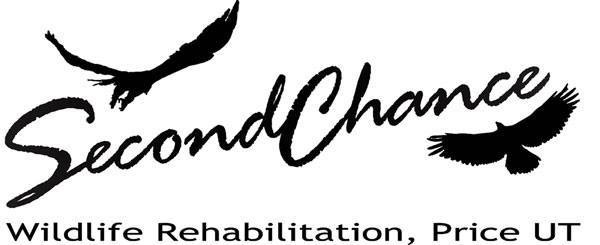
The Second Chance Wildlife Rehabilitation is a non-profit charitable organization located in Carbon County that is dedicated to the care of sick, orphaned and injured wildlife. Facility Director, Debbie Pappas took time from her busy schedule to talk over the telephone with Castle Country Radio to discuss the services they provide.
“We are one of eight federally, well state or federally, I actually have both licenses state and federal, rehabilitators that work taking care of all the issues with wildlife throughout the state that where animals are injured. Whether it be illness or struck by a vehicle, or shooting, or something like that. That’s what a rehabilitator does,” said Pappas. The most common calls that the wildlife rehabilitation organization receives is that an eagle has been hit on the highway and in the Springtime its baby birds have fallen from their nests. There are many types of patients that the facility helps including waterfowl, small mammals, songbirds and raptors.
A big issue that the rehabilitation finds in animals is that they are suffering from lead poisoning. “In fact, I sit on a committee with the State of Utah regarding the eagle population in our state and one of the biggest concerns that we deal with is lead issues. It’s been a huge problem in our area. In fact, I just lost a Golden Eagle due to eating Prairie Dogs that people had gone out and shot, and left those poor little bodies everywhere full of lead and it’s so sad because other things that come along eat them and die,” explained Pappas. The treatment that takes place for an animal suffering from lead poisoning can be very painful and takes a bit of time to try to get them well. Outdoorsman do have the option to purchase lead-free ammunition if they choose to.
Second Chance Wildlife Rehabilitation is a non-profit, charitable organization and relies heavily on donations. “It never has been, or never will be any pay for the work that we do. The reason rehabilitators become trained, get licensed to do what they do is because we know there’s a huge enormous gap that these poor victims fall in to and many, many lives are lost when a rehabilitator is not involved or available,” stated Pappas. The rehabilitation covers the biggest geographical area which is usually about 16 – 17 counties in Utah.
To learn more about Second Chance Wildlife Rehabilitation visit their website at https://wildliferehabprice.wixsite.com/2ndchance or their Facebook page. If you would like to volunteer or make a donation call Debbie at (435) 650-3441.
